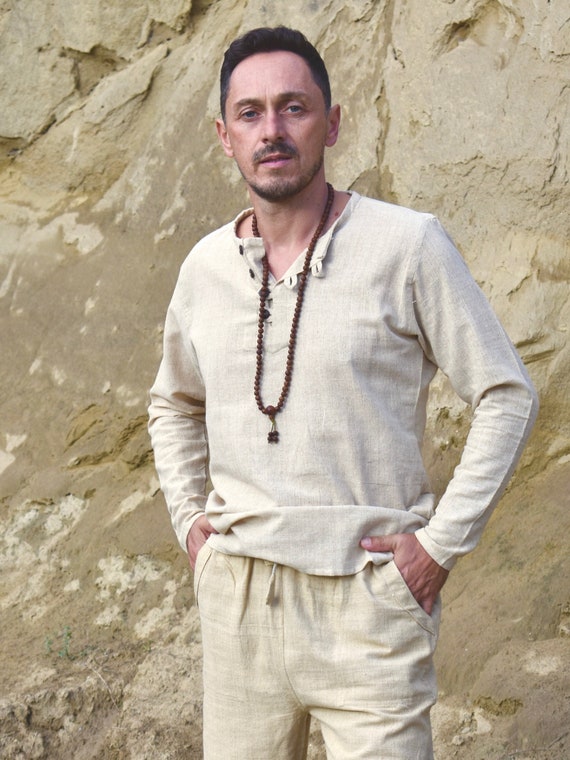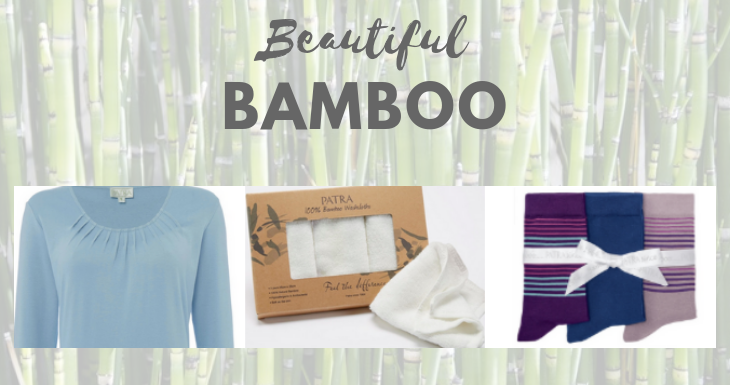Best Advice To Picking Bamboo Clothing
Wiki Article
Why Is Hemp More Durable, Bidegradable And Regenerative Than Cotton?
Hemp is thought to be more biodegradable due to its inherent qualities and the way hemp is grown. Here's why- Biodegradability-
Natural Fibers- Hemp, a natural fiber from plants is biodegradable. When they are discarded, hemp clothing and textiles break down naturally over time, returning to the environment without generating long-lasting debris. It is a striking contrast to synthetic fibers like polyester that can take a number of years to break down.
Insufficient synthetic additives- Hemp textiles typically do not contain synthetic additives or chemical treatments that can hinder biodegradability. Some textiles made of cotton however could have been treated using synthetic chemicals such as dyes and finishes that can delay biodegradation.
Durability-
Hemp fibers can be characterized by their durability and strength. Hemp fabrics, clothing and other items are more durable than cotton. This means that hemp clothing can endure many wash cycles and wear cycles prior to showing signs of deterioration.
Hemp fabrics are less likely to pill (the formation small fuzzy ball on the surface of the fabric) as compared to cotton. This attribute helps to prolong their life and overall quality.
Regenerative Agriculture-
Soil Health - Hemp cultivation is regenerative when it is done in a sustainable manner. Hemp has roots that are deep, which can prevent compaction and soil erosion. It can also enhance soil health through aerating and enhancing microbial activities. This regenerative element could leave the soil in better condition for future crops.
Low environmental impact Sustainable hemp cultivation methods generally use low levels of pesticides and herbicides to reduce environmental harm. Cotton farming, which relies on synthetic chemicals could result in soil degradation and water pollution.
Water Efficiency-
Low Water Requirements- Hemp generally needs less water than cotton to development. Due to its drought-resistant properties, it can be grown with little or no irrigation. This makes the plant the ideal choice for those where water is scarce for example, dry areas.
Hemp is also a viable option in the crop rotation system to enhance soil health and reduce disease risk and depletion. In traditional cotton farming, crop rotation is rarer.
The versatility of hemp Hemp can be used for a wide range of applications like clothes, textiles papers, paper, building materials, and more. This versatility allows hemp to be utilized in a broad spectrum of industries using eco-friendly and sustainable methods.
While hemp is a great choice for these benefits, it's important to note that both hemp and cotton can be produced sustainably or not, based on the practices of farming and methods of processing. The benefits for the environment of hemp could be enhanced by choosing products which are produced ethically and with ecofriendly methods. In the same way using organic cotton could help reduce some of the environmental issues associated with conventional cotton production. Have a look at the recommended official statement on hemp clothing for site examples including hemp t shirts wholesale, hemp jeans mens, hemp clothing, jeans hemp, hemp fabric clothing, hemp fabric, hemp tee shirts, hemp clothing for men, hemp fabric clothing, hemp mens jeans and more.

What Is It That Gives Hemp Fibers Breathable And Moisture-Wicking Properties, As Well As Thermoregulatory?
Hemp fibers possess distinct chemical and structural properties that make them breathable moisture-wicking, and thermoregulatory. These properties result from the combination of the following aspects- Microscopic Structure- Hemp fibers are hollow, porous structure which allows air to flow through the fibers. Hemp textiles are highly breathable because of their natural porosity. The structure, when knitted or knitted, permits air to flow, which aids in ventilation, and preventing heat and humidity from accumulating on the body.
Hemp fibers possess a high affinity to water and are able to absorb moisture. Wearing hemp clothes can aid in absorbing sweat and moisture. This will stop the sensation of being wet. Hemp fibers can also wick water away from your body by dispersing the moisture over large areas, which allows it to evaporate faster. When you are exercising or in hot temperatures, this moisture-wicking ability helps keep you cool and dry.
Hemp fibers are naturally insulation. They can trap heat close to the skin when it's cold. In the summer, they allow excess water and heat escape to help cool down. Because of their thermoregulating property, hemp clothing can be used for different temperatures and activities.
Hemp fibres have anti-microbial properties which help in inhibiting the growth of bacteria causing unpleasant odors. This is a factor that contributes to the freshness, and also odor resistance of hemp clothing.
Hemp clothes are durable and long-lasting. It can be washed and worn over and over without losing its breathability and moisture-wicking abilities. This durability allows hemp garments to last longer, which can reduce the need for replacing them and, thus, the environmental impact.
UV Protection- Hemp fibres offer a natural UV protection that shields your skin from harmful UV radiation. Hemp clothing is flexible due to its UV blocking properties. It's great for outdoor activities.
Important to note is the fact that these qualities are present in hemp fibres. They do not rely on chemical treatment or other additives. Hemp is a natural fibre with a variety of qualities that make it a suitable and sustainable for clothing. This is particularly the case for outdoor wear, activewear and warm-weather clothing. As hemp fibers can be processed and then woven and woven, they maintain their natural properties, making them an eco-friendly and functional fabric. Read the top discover more here for hemp clothing for blog advice including hemp tees wholesale, hemp yoga clothes, hemp yoga clothes, hemp athletic wear, hoodlamb jacket, hemp shorts mens, hemp coat, hemp bathing suit, hemp pants mens, hemp shirts and more.

What Are Some Of The Benefits Of Bamboo Clothing For Comfort And The Environment?
Bamboo clothing can be both eco-friendly and comfortable.
Softness- Bamboo fabrics are popular for their extraordinary softness. It is smooth and silky to the sensation. Bamboo clothing is incredibly soft and popular for loungewear, activewear, intimate clothes, and many other types of clothing.
Breathability- Bamboo fibers are naturally breathable and wick moisture away. They are made up of micro-gaps, which allow air to circulate to keep you cool and comfortable even in hot weather. Moisture wicking assists in drawing sweat away from the skin.
Bamboo clothing has great thermoregulatory characteristics. The clothing can keep you warm by trapping the heat near your body. It also helps to keep cool in summer heat because it lets excess heat and moisture escape. Bamboo clothing can adapt to temperature variations is what makes bamboo clothing perfect to wear throughout the year.
Hypoallergenic Bamboo fabric is naturally hypoallergenic. It is also gentle on sensitive skin. Bamboo fabric is more likely than other fabrics to cause allergic reactions or irritations, therefore it's an ideal choice for people with sensitive skin or allergies.
Bamboo fibers are naturally antimicrobial properties that prevent the spread and growth of bacteria that cause odor. This attribute contributes to the breathability and comfort of bamboo clothing even during exercising.
Environment-
Bamboo is sustainable- It is a sustainable, renewable resource. It is one among the fastest growing plants and requires minimal water. It doesn't require herbicides, pesticides, or any other chemical are needed for its cultivation. Bamboo can be harvested and not kill the plant, as it grows by regenerating its roots.
Low Water Usage- Bamboo is inherently water-efficient. Bamboo can thrive even without irrigation, and is often planted by rainwater only. This helps reduce the environmental impact that comes with agricultural water usage.
Biodegradability- Bamboo clothes are biodegradable which means it degrades naturally as it is disposed. This feature reduces the quantity in landfills of nonbiodegradable fabrics.
Carbon Sequestration Bamboo plants absorb carbon dioxide (CO2) during rapid growth. Bamboo is a great choice as a carbon sink to help mitigate climate change.
Chemical Reduction. The process of making Bamboo Fabric generally requires less treatment and processes as compared to other types of textiles.
Closed-Loop Production- A few bamboo fabric production processes utilize closed loop systems, which recycle and reuse water and chemicals, minimizing pollution and waste.
It is important to note that the effect of bamboo clothing on the environment may vary based on the type of manufacturing process used and the source of bamboo used and sustainable from the bamboo forest. Bamboo clothing produced according to eco-friendly practices will provide the most environmental benefits. Read the best agree with for bamboo clothing for website recommendations including bamboo ladies pants, bamboo leggings, ladies bamboo pants, bamboo clothing for women, bamboo apparel wholesale, men bamboo boxer shorts, bamboo twirl dress, bamboo baby pajamas, checkered bamboo pajamas, women's freefly apparel and more.
